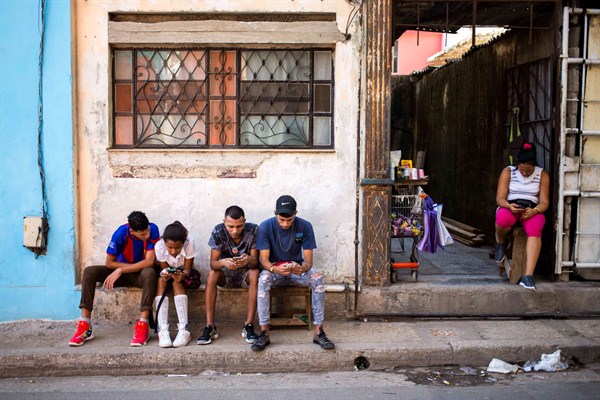The Cuban government rolled out mobile internet service for the first time last month, one of the last countries in the world to do so. While the 3G mobile network will be too costly for most Cubans, it could still help open political space and develop the island’s burgeoning independent media scene. In an interview with WPR, Ted Henken, a sociologist at Baruch College in New York who specializes in contemporary Cuba, discusses the promises and peril of expanding digital access in Cuba.
World Politics Review: How much of an impact will this actually have on Cubans’ ability to access the internet?
Ted Henken: The opening of Cuba’s first 3G mobile network continues a trend that began in 2014 with the inauguration of scores of state-run “telepuntos” or internet cafes. The government expanded on this in 2015 by opening 35 paid Wi-Fi hotspots in public spaces, growing to an estimated 800 by the end of 2018. Since then, internet access for Cubans has gradually increased through a variety of other channels, including home-based plans and now mobile access.

